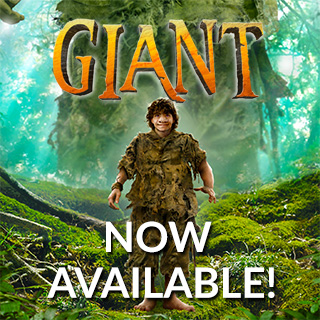The Writer’s Magic Wand
I just put down the pen on a five-year project: Less than an hour ago, I completed the final revisions of the last book of my trilogy, The Great Tree of Avalon.
Yes, I really meant “put down the pen.” It’s crazy, I know, but even in this day of amazing computer technology, I write all my manuscripts in longhand. Even a manuscript as long as this one—over 400 pages. Why?
Because creating stories is a subtle, mysterious process—and remains mysterious to me even after doing it now for almost twenty years. It’s not about efficiency; if it were, I would surely use a computer. It’s not about pleasing a crowd out there, although I am of course pleased when something I write touches someone who reads it. It’s not even about familiarity, although I’m sure that part of why I still use a pen is that it takes me back to my first creative moments as a child, sitting under a ponderosa pine on my parents’ Colorado ranch.
Having written a few stories about a wizard named Merlin, I can say with certainty that no power he ever possessed as the mage of Camelot is as great as the power inherent in words. Think about it: Words enable us to create new characters, imagine new worlds, and explore new ideas. There is no limit whatsoever to where you and I can travel (not to mention what we might do when we get there) in the realm of words!
Creating a freshly imagined world is both exhilarating and exhausting. It’s the hardest work I have ever done—harder than being a wilderness guide, teacher, or president of a fast-growing company. And it’s also, at the very same time, the most joyous labor I have ever done.
All I knew when I started writing full time was how very little I knew. And I still feel very much that same way. Writing is a craft in which one can always improve, always grow. That’s one of its most wonderful qualities: the capacity to stretch us as writers and as human beings.
There was something I felt strongly about when I left my job in business to see if I could become a writer. It had to do with mortality, passion, and a dream. My job was quite comfortable, mind you, with some nice people (and some not so nice), and the business was reasonably successful. But my job still left a deep part of me unfulfilled—the part of me that longs to create lasting stories that wrestle with some of life’s greatest questions. What does it mean to be alive? To be human? To have free will? What are our responsibilities to each other? And to the wondrous planet that supports and sustains us?
So I just had to do it, to follow my passion for writing. Even if no one ever read a page of anything I wrote, I knew that I simply had to try, or an essential part of my soul would wither and die. No way would I have ever predicted all the lovely things that have happened since that time—editions in many languages, awards, movie deals, and (best of all) all the heartfelt letters from kids and adults. But it was never about that. It was about living my passion, my dream, to write.
Today, as throughout life, my two greatest sources of inspiration are children and nature. And on the farm where I live in Colorado, I am lucky enough to be surrounded by both. All the time. Our five energetic, creative, zany, earnest, spirited kids are full of wonder, freshness, adventure, and humor. We read a whole lot, aloud as a family or quietly as individuals. And we do not watch television. The result is an active, creative household that I call “joyous chaos.”
At the same time, nature invariably fills my cup. Through nature, I feel close to things eternal. Isn’t it remarkable how, out in the natural world, we human beings can feel both very small and very large, at once? Small, because we are humbled by the magnitude of the stars seen from a mountain meadow, the great redwood trees, or the ocean shore. And large, because we are also connected to all of that creation—part of the grand sweep of things that one character in my novels calls “the great and glorious song of the stars.”
As a writer as well as a reader, I am always drawn to tales of heroic people. For each of us, no matter how young or small or disadvantaged, has the capacity for heroic qualities down inside. We can find in ourselves courage, compassion, honesty, hope, humor, perseverance—everything it takes to create a new life. And a new world. This is why I have founded a national award for heroic young people, named after my mother: the Gloria Barron Prize for Young Heroes. If you want to be inspired, check out the recent winners of this award by visiting my website. These kids will surely renew your hope in humanity!
Like the young boy who washes ashore on the first page of The Lost Years of Merlin—too weak to stand, too disoriented to remember his own name—all of us have enormous potential down inside. We might become anything we choose, perhaps even a wizard. Or, amazingly, a writer.
Maybe that, in the end, is why I write those long manuscripts by hand. It’s all about the magic, the wonder, of words.
The pen, you see, is my wand.
T. A. Barron writes books and creates new worlds in the attic of his home in Colorado. To learn more, visit www.tabarron.com.

